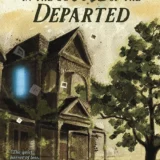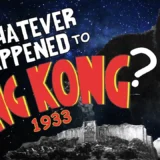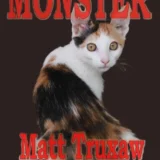
Title: Tales from Alternate Earths
Author: various
Paperback: 156 pages; $2.99 (Kindle)
Publisher: Inklings Press (August 19, 2016)
Language: English
I don’t read a lot of indie books. The problem is I got burned pretty badly by some awfully written stories that turned me off to that spectrum of fiction. That being said, I know a lot of good people (including some people who contributed to what I am about to review) who are making a serious effort to be authors outside of the big publishers, which I can respect. So when given the chance to review Inklings Press’ Tales From Alternate Earths, I was excited to try out the indie scene again.
Tales is a rather short anthology (coming in at just over 100 pages); it was an easy read with just eight stories, so I will review each one individually. Here we go:
“September 26th, 1983” by Jessica Holmes: Our hero is a young woman who scavenges the outskirts of her village to help maintain it’s restrictive society in a post-nuclear war Britain. She and her neighbors worship “Petrov” and are governed by the wardens who punish any dissent and ban anyone from leaving the “borders” of their domain. Our protagonist, however, feels there isn’t much left to pilfer and so she decides to risk the wardens’ ire by going outside the boundary, where she receives a rude awakening regarding the state of the world.
The close call of 1983 is one of those obscure pieces of history that is made even more fascinating by the fact that most of the world didn’t even know about it until the Cold War ended. I like what Jessica did with the story as well, managing to combine the usual dark pessimism of most post-apocalyptic stories with that plausible optimism that those same stories often leave out. Definitely worth a read.
“One More Dawn” by Terri Pray: An Egyptian queen must confront the fact that her Roman husband, who abandoned his country to be with her, is dying. Her only hope is that he can live to see one more dawn with her and their family.
Not much really to say about this story and I probably already gave away the twist even with my short plot summary (just think of the most famous Egyptian queen of the Roman era and it will come to you). It’s about a powerful woman used to having things go her way now forced to be helpless like the rest of us in the face of death. That said, the story did have some odd moments, including a healer character who may have been magical, although the question was left sort of ambiguous and didn’t really tie into the story that well. I think if you left that character out, “One More Dawn” might have been a better story, but otherwise it wasn’t that bad.
“Twilight of the Mesozoic Moon” by Brent A. Harris & Ricardo Victoria: In this timeline, the asteroid that wiped out the dinosaurs instead crashed into the Moon. Dinosaurs are thus allowed to continue to dominate Earth and soon an intelligent species evolved from raptors establishes an advanced civilization. Their world, however, is coming to an end when the damaged Moon finally breaks apart and crashes into the Earth. Nevertheless, our clever dinos have a plan. They will use a spaceship to go back in time and destroy the asteroid before it crashes into the Moon. What could go wrong?
I, frankly, loved this story. It truly captured the high concept ideas alternate history is famous for and showcased some wonderful world building even with the constraints of it being a short story. I liked how the spaceship was essentially a flying bio-dome inside which our carnivorous characters’ food sources are allowed to run free. Even the dinosaurs were well-done, featuring more scientifically accurate feathers rather than the scales that Hollywood gives them.
Yes the story is implausible, but who cares? Intentional implausibility often makes for the best stories. I can’t recommend this story enough.
“One World” by Cathbad Maponus: From the perspective of a Secret Service agent, we get the real story behind what happened after the Cuban Missile Crisis went hot. Through him we discover the sinister motives behind President Kennedy’s championing of a one world government, how millions died to prevent anyone from challenging the new world order and the government’s attacks on free society.
And we went from a story I loved to a story that I didn’t like at all. Admittedly I think people give JFK too much credit as a president. To be fair, he was probably the best person we could have asked for to keep the lid on nuclear war during the Cuban Missile Crisis, but he was lukewarm about things like civil rights (unlike LBJ who is often forgotten by historians) and his many extramarital affairs are ignored today, despite the fact that most contemporary politicians would not be given a break like that for them.
That said, even I found the depiction of JFK as some sort of inhuman megalomaniac who wanted to conquer the world to be rather…silly. If you are the type of person who believes in black helicopters, false flag attacks or FEMA concentration camps, this is a story for you. Everyone else should just skip it.
“Stargazing on Oxford Street” by Rob Edwards: A British astronomer travels into the destroyed remnants of London for personal reasons before the rebuilding effort begins. On the way, she and her guide remark on the world that was lost and how they could lose even more if the London Event happens again.
In this timeline, the Tunguska event happens not over the Siberian wilderness, but instead over London in 1908. I always thought this would be an interesting point of divergence to write about, especially since at the time Britain was the most powerful nation in the world and had the largest empire. All of this could have come crashing down if London was destroyed and could leave the world so different to be almost unrecognizable to us today.
That being said, world-building was rather light and except for a few references to Germany being a world leader, we don’t know much about what is going on outside of London proper. I still enjoyed the descriptions of what was essentially a bombed out London and the theme of cosmic indifference to the wants and desires of humans, while leaving out the tentacle monsters of Lovecraftian fiction. Definitely worth a read.
“The Secret War” by Leo McBride: A writer is on the run from the British government as he tries to make it back to London and tell the world what really happened to Thomas Henry Huxley. As he dodges patrols, he witnesses more and more soldiers marching south, yet none of the papers mention the horror that came from the stars.
This story can be best be summed up as: what if War of the Worlds was based on something that actually happened? With that mind, you can probably guess the identity of the writer, but the actual twist to the story is something else entirely, which I liked. The build up to it, however, was so heavy-handed you could see it coming from a mile away. Thus it was a good idea, but poorly executed.
Nevertheless, I should point out that this is more of a secret history than an alternate history. Maybe I am just being a purist, but I don’t like how these stories keep ending up in alternate history anthologies. Although not a bad story, it still isn’t alternate history and thus should not have been included since history has not technically changed, just our understanding of it.
“Treasure Fleet” by Daniel Bensen: In this timeline, Islam spreads to China and the Shia emperor rules the most powerful empire in the world. His reign is challenged, however, when the Sunni Arabs revolt and deny control of Mecca to him. When his admiral disgraces himself by losing to the Arab fleet, he risks everything to save his life by recommending a “flanking maneuver”. Instead of sailing west again across the Indian Ocean, he will sail east and attack them through the Mediterranean Sea. Of course we all know he will run into something else before he reaches Europe.
This was another great read in this anthology. The world-building was superb. I’m not sure if I have ever read a story before about a Muslim China, but considering they were for a long time one of the most powerful nations in the world, I could easily see them using their numbers and resources to make themselves the leader of Dar al-Islam. I also loved the references to other works of literature like Treasure Island and the hilarious translations of the people our intrepid explorers discover.
To be fair, I probably liked it only slightly less then “Twilight of the Mesozoic Moon” simply because it lacked the over-the-top awesomeness of time traveling space dinosaurs; still, it is a story I can highly recommend.
“Tunguska, 1987” by Maria Haskins: This story is told from the perspective of two Swedes who live at different points in a timeline where a race known as the “Metallics” have conquered the Earth. They punish any dissent harshly, but bizarrely are more than willing to help humanity thanks to their advanced medicine and renewable energy technology. One of our protagonists is a hunter who destroys a Metallic for killing his dog and is now on the run from them. The other is his descendant, a young girl who has been “invited” (in reality she has no choice but to come) to study at the Metallic capital located at Tunguska. She has no love of the Metallics and decides to become a martyr and take as many Metallics with her as possible. What she discovers at Tunguska quickly shatters her view of the world…but doesn’t necessarily convince her the Metallics are what humanity needs.
This story should not have been included in this anthology and I mean that in the best way possible. While reading this story I couldn’t help but feel this would make an awesome young adult novel. After the ending, and I will try not to spoil it, I was little upset that there wasn’t anything else to read. I could honestly feel there was more of a story that needed to be told. If Maria expanded on this short story and made it a full length novel (or even a series) she would find a major fan in me.
Well that is all I have to say on the individual stories. As for the anthology as a whole, Tales was a great read and made me feel better about the indie scene as a whole. I also liked how many female protagonists there were, especially from rarer settings in English-language books, like Sweden. If I had one criticism, I feel there wasn’t much variety regarding the short stories. There were multiple stories involving nuclear war, the secret origin of the flu, time travel and the Tunguska event. Perhaps Inklings Press didn’t have that many submissions so they weren’t able to be choosy, but if they were to publish an alternate history anthology again, I do hope they would include some more diverse stories.
All in all, I can still recommend Tales From Alternate Earths. It is an impressive collection of indie alternate history that you should be reading.










2 Comments